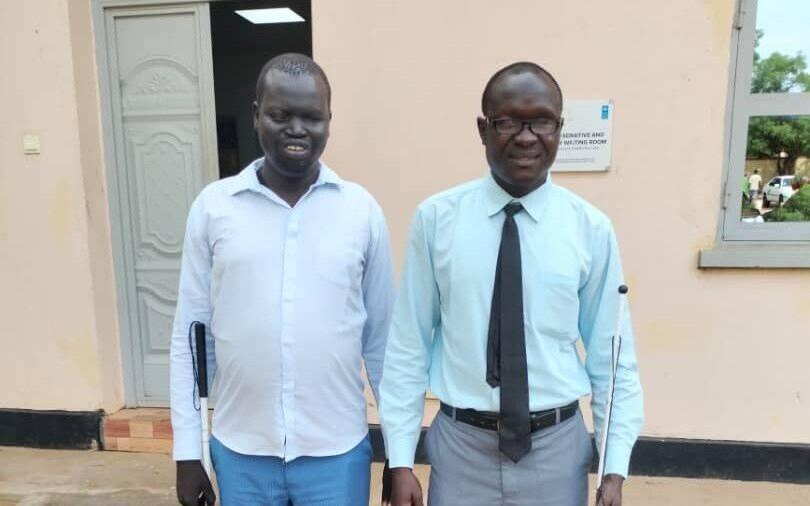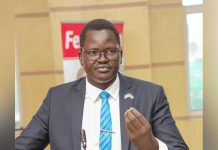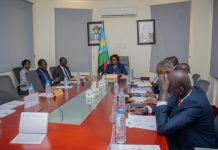Africa-Press – South-Sudan. Advocate Mawut Louise and Advocate Charles Pascual Clement – now fully licensed and practicing -are both visually impaired graduates of the University of Juba’s School of Law.
Two extraordinary advocates are challenging deep-seated stereotypes and proving that disability is neither a barrier nor a limitation—but rather a source of resilience, purpose, and strength.
They are not only litigating in courtrooms across the country but also championing a more inclusive and equitable justice system.
Mawut, a 2013 graduate and current master’s student, serves on the National Constitutional Review Commission.
Clement, who graduated in 2017, heads the South Sudan Blind Football Association and serves on the executive board of the national Paralympic Committee. Both are active in legal practice and disability rights advocacy.
Breaking Barriers in the Courtroom
In a society where lawyers are often stereotyped as physically imposing, Mawut recalls the initial challenges of being a blind professional in court.
“The problem arises when a blind person enters the legal space. Recognition becomes the issue,” he explains. “But with clear communication and professionalism, those mental barriers begin to fall.”
Clement echoes this, noting the disbelief he often encounters: “People stop and stare when I say I’m a lawyer. But legal reasoning and conduct speak louder than appearances.”
Turning Technology into a Legal Lifeline
Practicing law is complex for anyone—but for visually impaired attorneys, the barriers include inaccessible facilities, documents, and social attitudes.
As the world advances with technology, the out-of-sight lawyers believe the sky is the limit and are leveraging technology to level the field.
They have embraced screen-reading tools such as JAWS (Job Access with Speech), NVDA (Non-Visual Desktop Access), Apple’s VoiceOver, and Android’s TalkBack to read legal texts, draft documents, attend virtual court sessions, and communicate with clients.
However, challenges persist. “Most libraries still lack digital resources compatible with screen readers,” says Mawut. “This is especially problematic in universities. The gap must be filled.”
Clement identifies the biggest hurdle as societal perception. “The real challenge is how people view those with disabilities. But that doesn’t stop us.”
Changing Minds and Winning Cases
Both advocates acknowledge that skepticism from clients and peers is common—but not insurmountable.
“I try to understand where the doubt comes from,” says Mawut. “If it’s ignorance, I educate. If it’s intentional, I address it professionally but firmly.”
“Once clients see our capabilities—through direct communication or court performance—their doubts disappear,” Clement adds.
W-winning some, losing others, are the courtroom games. But for Mawut, the outcome isn’t everything: “It’s about presenting the client’s case effectively and ensuring their rights are respected.”
Clement shares that he’s gained valuable courtroom experience practicing at the Gudele High Court under Judge Michael Aten, who taught him how to approach complex and sensitive cases.
Justice Beyond the Courtroom
Their most rewarding work often happens outside of court—successfully mediating land disputes or family conflicts that could have otherwise escalated into violence or neglect.
“To visually impaired youth considering law, my message is simple,” says Mawut. “The legal field is just like any other. What matters is your dedication and commitment.”
Clement calls on institutions to do more: “We need accessible libraries, inclusive materials, and assistive technology at every level—from primary school to university. At the University of Juba alone, we have over 20 visually impaired students.
Lessons
Advocates Mawut Louise and Charles Pascual Clement are not just legal practitioners—but are agents of change, a testament that with the right tools, support, and mindset, no disability is an inability to justice.
Their successes challenge perceptions, reform systems, and serve as a reminder that justice—at its best—is blind in all the right ways.
For More News And Analysis About South-Sudan Follow Africa-Press






